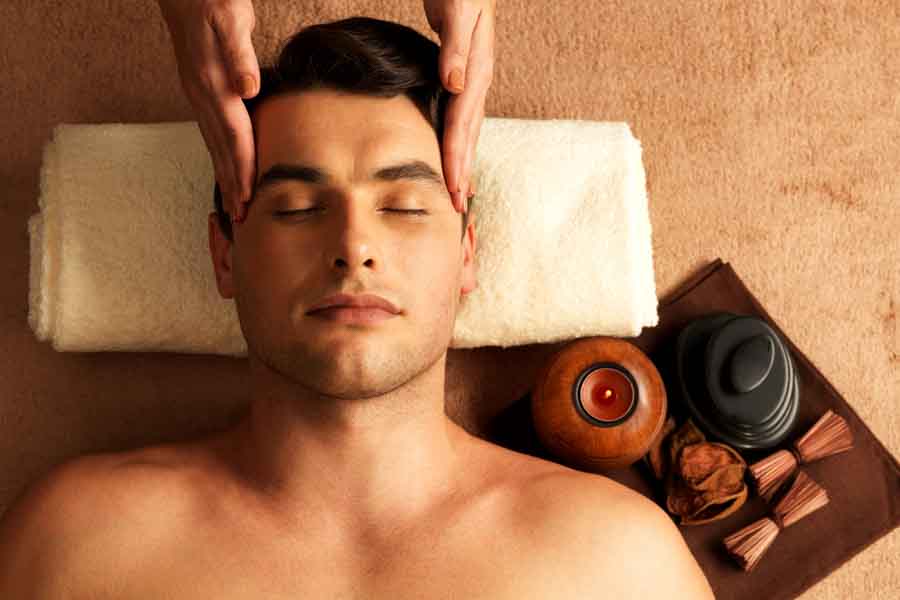Post-Op Massages Near Me: Your Ultimate Guide To Recovery
Let’s face it, folks. If you’ve just gone through surgery, your body is basically screaming for some TLC. That’s where post-op massages come in. They’re not just a luxury; they’re a crucial part of your recovery process. Now, if you’re searching for "post-op massages near me," you’re on the right track. But hold up—there’s a lot more to this than just walking into any old massage joint. In this guide, we’re diving deep into everything you need to know about post-op massages, from why they matter to how to find the best ones in your area. So, grab a coffee, get comfy, and let’s dive in.
First things first, let’s break down what a post-op massage actually is. It’s not your run-of-the-mill spa day. This is a specialized form of therapy designed to help your body heal after surgery. Whether you’ve had a knee replacement, breast reconstruction, or even something less invasive like a hernia repair, post-op massages can make a world of difference. They help reduce swelling, improve circulation, and even ease scar tissue formation. Sounds pretty amazing, right?
But here’s the kicker: not all massages are created equal. You can’t just stroll into a random spa and expect miracles. Finding the right post-op massage therapist near you is key. That’s why we’ve put together this comprehensive guide. We’ll walk you through the benefits, the process, and most importantly, how to find the best post-op massages near you. Ready? Let’s go!
Read also:Mastering Juno Poses The Ultimate Guide To Capturing Stellar Moments
Table of Contents
- Why Post-Op Massages Matter
- Top Benefits of Post-Op Massages
- How to Find Post-Op Massages Near Me
- Different Types of Post-Op Massages
- When to Start Post-Op Massages
- The Cost of Post-Op Massages
- Questions to Ask Your Therapist
- Does Insurance Cover Post-Op Massages?
- Tips for a Successful Post-Op Massage
- Final Thoughts
Why Post-Op Massages Matter
Alright, let’s get real. Surgery is no joke. It’s a major event that takes a toll on your body, and recovery isn’t always a walk in the park. That’s why post-op massages are such a game-changer. They’re not just about feeling good; they’re about helping your body heal faster and more effectively. When you’re recovering from surgery, your body needs all the help it can get. Post-op massages provide that extra boost by improving circulation, reducing inflammation, and even helping with scar tissue management.
Think about it this way: after surgery, your body is like a car that’s been in a major accident. It needs repairs, and those repairs take time. Post-op massages are like the mechanics working on your car—they’re fine-tuning everything to make sure it runs smoothly again. Whether you’ve had a major surgery or something smaller, these massages can make a huge difference in your recovery journey.
Top Benefits of Post-Op Massages
So, what exactly do post-op massages do for your body? Let’s break it down:
- Reduces Swelling: After surgery, swelling is pretty much a given. Post-op massages help reduce that swelling by promoting lymphatic drainage. This means your body can get rid of excess fluid faster.
- Improves Circulation: Good blood flow is essential for healing. Massages help boost circulation, which means more oxygen and nutrients are delivered to your tissues.
- Manages Scar Tissue: Scar tissue can be a real pain in the neck (or wherever your surgery was). Post-op massages help break down that tissue, making it less stiff and painful.
- Relieves Pain: Let’s be honest, pain is one of the biggest hurdles in recovery. Massages can help ease that pain by relaxing your muscles and reducing tension.
- Reduces Stress: Surgery can be stressful, and stress isn’t good for healing. Massages help lower stress levels, which can speed up your recovery.
These benefits aren’t just fluff. They’re backed by science and have been proven to make a real difference in recovery outcomes. So, if you’re on the fence about whether or not to try a post-op massage, this should give you some serious motivation.
How to Find Post-Op Massages Near Me
Now, let’s talk about the elephant in the room: how do you find the right post-op massage therapist near you? It’s not as simple as typing "post-op massages near me" into Google (although that’s a good start). Here’s what you need to do:
Start with an Online Search
Begin by using search engines like Google or Bing. Type in keywords like "post-op massages near me" or "therapeutic massage for recovery" to see what pops up. Look for therapists who specialize in post-op care or have experience working with surgical patients.
Read also:American Banking Association Exploring Its Role And Influence In Modern Finance
Ask for Referrals
Don’t underestimate the power of word-of-mouth. Ask your surgeon, physical therapist, or even other patients for recommendations. They might know of a great therapist who can help you with your specific needs.
Check Reviews and Ratings
Once you’ve found a few potential therapists, take a look at their reviews. See what other patients have to say about their experience. Look for therapists with high ratings and positive feedback, especially from people who’ve had similar surgeries to yours.
Remember, finding the right therapist is crucial. You want someone who understands your needs and can provide the care you deserve. Don’t settle for just anyone—do your research and find the best post-op massage therapist near you.
Different Types of Post-Op Massages
Not all post-op massages are the same. There are different techniques and styles that therapists use, depending on your needs. Here are a few of the most common types:
- Lymphatic Drainage: This technique focuses on reducing swelling by promoting lymphatic flow. It’s especially helpful after surgeries that involve lymph nodes.
- Myofascial Release: This technique targets the fascia, the connective tissue that surrounds your muscles. It helps reduce tension and improve mobility.
- Swedish Massage: A gentle, full-body massage that promotes relaxation and improves circulation. It’s great for overall recovery.
- Deep Tissue Massage: This one’s a bit more intense. It targets deeper layers of muscle and connective tissue, making it ideal for areas with chronic pain or stiffness.
Each type of massage has its own benefits, so it’s important to discuss with your therapist which one is right for you. They’ll be able to tailor the treatment to your specific needs and recovery goals.
When to Start Post-Op Massages
Timing is everything when it comes to post-op massages. You don’t want to jump into them too soon, but you also don’t want to wait too long. So, when’s the sweet spot? It depends on the type of surgery you’ve had and your doctor’s recommendations. In general:
- For minor surgeries, you can usually start massages within a week or two.
- For major surgeries, you might need to wait a few weeks or even months.
Your doctor or physical therapist will be able to give you a better idea of when it’s safe to start. Once you get the green light, don’t wait too long. The sooner you start, the better your recovery will be.
The Cost of Post-Op Massages
We all know money talks, so let’s talk about the cost of post-op massages. Prices can vary widely depending on where you live, the therapist’s experience, and the type of massage you’re getting. On average, you can expect to pay anywhere from $50 to $150 per session. If that sounds steep, don’t worry—there are ways to make it more affordable.
Insurance Coverage
Some insurance plans cover post-op massages, especially if they’re prescribed by your doctor. Check with your insurance provider to see if you’re eligible for coverage. If not, there are still options like payment plans or discounts for multiple sessions.
Look for Discounts
Many therapists offer discounts for first-time clients or package deals if you book multiple sessions at once. It’s worth asking about these options to save some cash.
At the end of the day, the cost of a post-op massage is an investment in your recovery. Think of it as money well spent.
Questions to Ask Your Therapist
Before you book that first session, there are a few questions you should ask your therapist. This will help ensure they’re the right fit for you and your recovery needs:
- Do you specialize in post-op massages?
- What type of massage do you recommend for my specific surgery?
- How many sessions will I need?
- Do you accept insurance?
- What should I expect during the session?
Don’t be afraid to ask as many questions as you need to feel comfortable. A good therapist will be happy to answer them and make sure you’re fully informed.
Does Insurance Cover Post-Op Massages?
This is a question a lot of people have, and the answer isn’t always straightforward. Some insurance plans do cover post-op massages, especially if they’re prescribed by your doctor. Others might only cover part of the cost, or not cover them at all. It’s important to check with your insurance provider to see what’s covered under your plan.
If your insurance doesn’t cover massages, don’t worry. There are still ways to make it more affordable, like payment plans or discounts. And remember, the investment is worth it if it helps speed up your recovery.
Tips for a Successful Post-Op Massage
Now that you know the ins and outs of post-op massages, here are a few tips to make sure you get the most out of your sessions:
- Communicate with Your Therapist: Let them know exactly what you’re feeling and any areas of concern. The more they know, the better they can tailor the massage to your needs.
- Stay Hydrated: Drinking plenty of water before and after your massage helps your body flush out toxins and recover faster.
- Be Patient: Recovery takes time, so don’t expect miracles after one session. Stick with it, and you’ll start seeing results.
With these tips in mind, you’ll be well on your way to a successful recovery journey.
Final Thoughts
So, there you have it—your ultimate guide to post-op massages near me. From understanding the benefits to finding the right therapist and making the most of your sessions, we’ve covered everything you need to know. Post-op massages aren’t just a luxury; they’re a crucial part of your recovery process. They help reduce swelling, improve circulation, manage scar tissue, and even relieve pain. And let’s not forget the mental benefits—they can seriously reduce stress and make your recovery journey a little smoother.
If you’re searching for "post-op massages near me," don’t settle for just anyone. Do your research, ask for referrals, and find a therapist who truly understands your needs. And remember, recovery takes time and patience, but with the right care, you’ll be back on your feet in no time.
So, what are you waiting for? Take action today. Book that first session, stay hydrated, and communicate with your therapist. And don’t forget to share this guide with anyone else who might benefit from it. Your recovery journey is important, and you deserve the best care possible.



